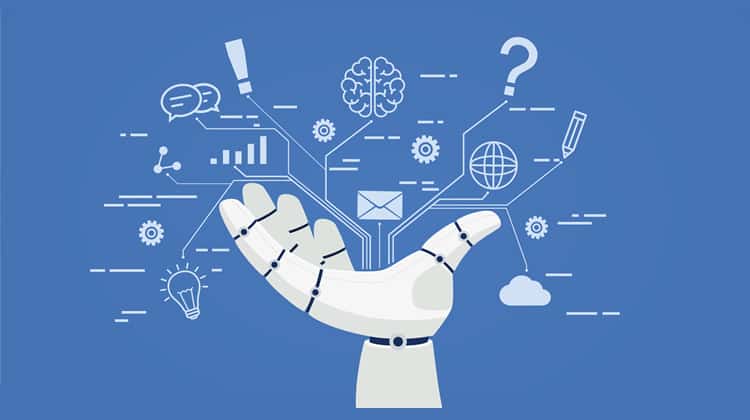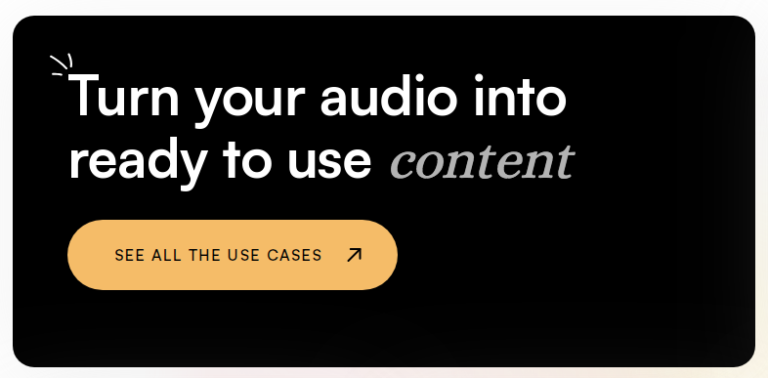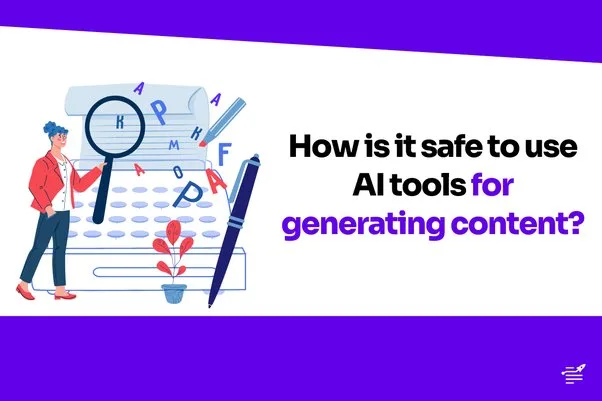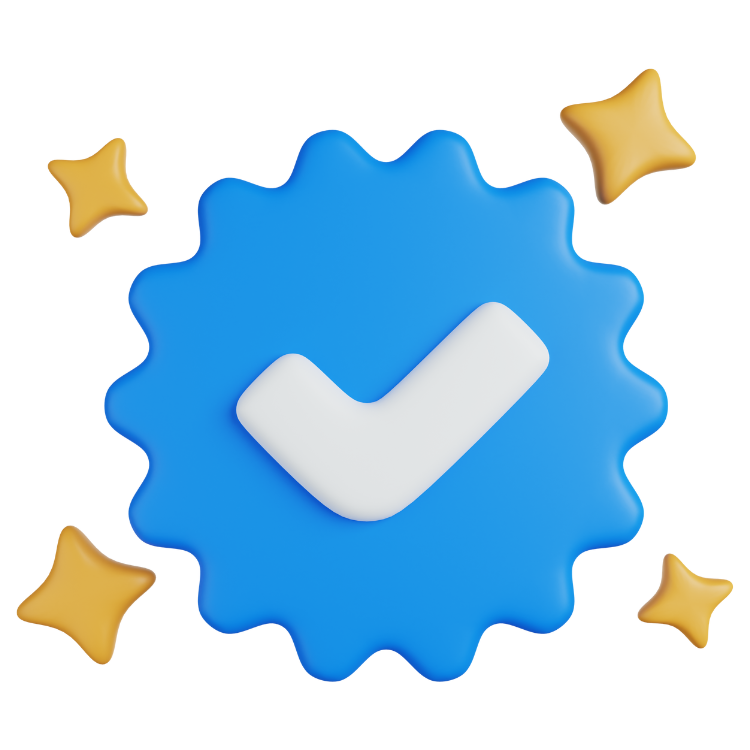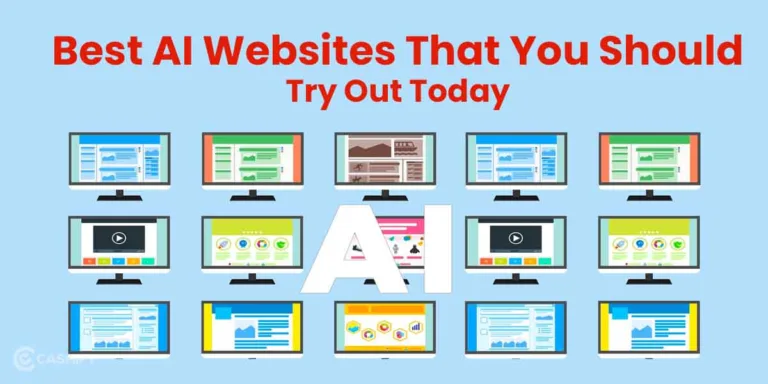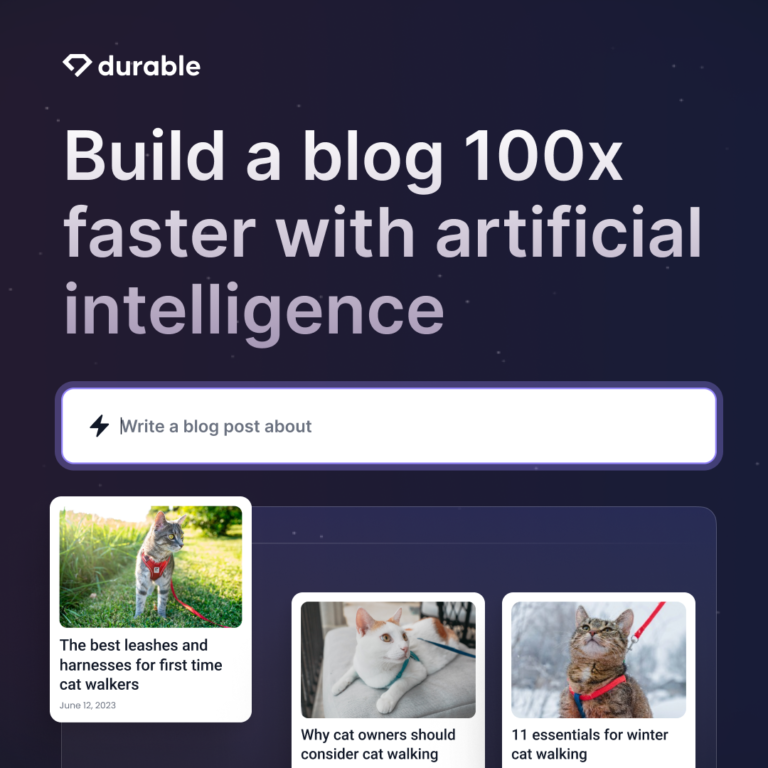Can AI Web Tools Improve User Experience?
In today’s digital age, user experience plays a crucial role in determining the success of a website. With the advancement of technology, AI web tools have emerged as a potential solution to enhance user experience and drive engagement. So, can AI web tools really improve user experience? Let’s dive in and explore the possibilities.
AI web tools, powered by intelligent algorithms and machine learning capabilities, have the potential to revolutionize the way users interact with websites. These tools can analyze user behavior, preferences, and patterns to provide personalized recommendations and suggestions. From chatbots that offer instant customer support to recommendation engines that curate tailored content, AI web tools have the ability to create a seamless and intuitive user experience. By understanding user needs and adapting in real-time, these tools can anticipate user actions and deliver relevant information, ultimately enhancing user satisfaction and engagement.
Incorporating AI web tools into website design and development can lead to significant improvements in user experience. These tools can streamline navigation, enhance search functionality, and optimize content delivery, resulting in a more user-friendly and efficient website. By automating repetitive tasks and offering intelligent assistance, AI tools can save users time and effort, making their online experience more enjoyable. Furthermore, AI-powered analytics can provide valuable insights into user behavior and preferences, allowing businesses to make data-driven decisions and continuously improve their websites.
In conclusion, the integration of AI web tools has the potential to greatly enhance user experience by providing personalized recommendations, streamlining navigation, and optimizing content delivery. As technology continues to advance, it is essential for businesses to leverage AI tools to create websites that cater to the evolving needs and expectations of users. By embracing these innovative solutions, businesses can not only improve user satisfaction but also gain a competitive edge in the digital landscape. So, let’s harness the power of AI and unlock the true potential of user experience.
AI web tools have proven to be instrumental in improving user experience on websites. By utilizing advanced algorithms and machine learning, these tools can analyze user behavior, personalize content, and provide real-time recommendations. From chatbots that offer instant customer support to recommendation engines that suggest relevant products, AI web tools enhance engagement, streamline navigation, and create a customized experience for users. With continuous advancements in AI technology, the potential for improving user experience through these tools is vast.
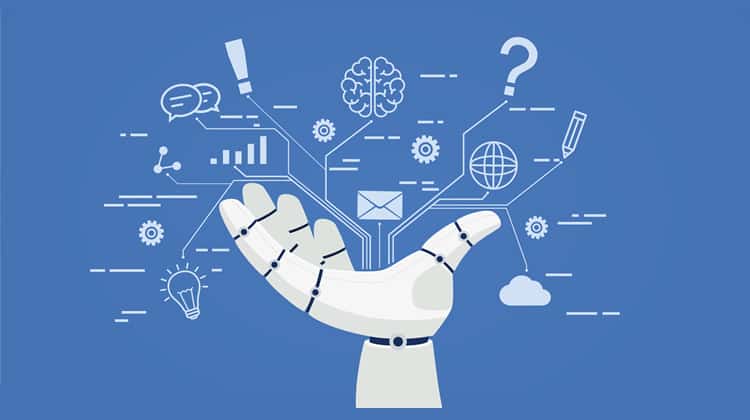
Can AI Web Tools Improve User Experience?
Artificial Intelligence (AI) has revolutionized various industries, including web development and user experience (UX) design. With the advancements in AI technology, web tools powered by AI have emerged, promising to enhance the overall user experience on websites. These tools utilize machine learning algorithms and natural language processing to analyze user behavior, optimize content, and personalize interactions. In this article, we will explore how AI web tools can improve user experience and provide valuable insights into their benefits and applications.
The Role of AI in Web Design
AI plays a crucial role in web design by enhancing various aspects of user experience. One of the key areas where AI excels is in analyzing user behavior and preferences. AI-powered tools can collect and analyze immense amounts of data, such as click patterns, navigation paths, and user feedback. By understanding how users interact with a website, AI tools can identify areas for improvement and suggest design changes that enhance usability.
Moreover, AI tools can automate repetitive tasks, freeing up designers’ time to focus on more creative and strategic aspects of web design. For example, AI algorithms can generate design mockups based on user preferences and industry standards, reducing the time and effort required to create visually appealing and user-friendly websites.
Benefits of AI Web Tools for User Experience
AI web tools offer numerous benefits that contribute to an enhanced user experience. Firstly, these tools can personalize content based on individual user preferences. By analyzing data on user behavior and demographics, AI algorithms can deliver personalized recommendations, product suggestions, or relevant content that aligns with users’ interests. This personalization creates a more engaging and tailored experience for website visitors, increasing their satisfaction and likelihood of conversion.
Secondly, AI web tools can optimize website performance by improving loading speed and reducing downtime. AI algorithms can monitor website performance in real-time, detecting and resolving issues that may hinder user experience. By ensuring a smooth and uninterrupted browsing experience, AI tools contribute to a positive user perception of the website and encourage longer engagement.
Applications of AI Web Tools
AI web tools have a wide range of applications that benefit both website owners and end-users. One prominent application is chatbots, which utilize AI algorithms to provide instant and automated customer support. Chatbots can answer frequently asked questions, guide users through the website, and even process transactions. By offering quick and efficient support, chatbots improve user satisfaction and reduce the need for human intervention.
Another application of AI web tools is in content optimization. These tools analyze user behavior and preferences to generate personalized content recommendations and suggest improvements to existing content. By tailoring content to individual users, AI tools enhance engagement, increase time spent on the website, and ultimately drive conversions.
AI Web Tools vs. Traditional Web Design
While traditional web design approaches rely on human expertise and intuition, AI web tools bring a data-driven and automated approach to the table. Traditional web design often requires extensive user research, testing, and iterative improvements, which can be time-consuming and costly. AI web tools, on the other hand, leverage machine learning algorithms to continuously learn and adapt based on user data, resulting in faster and more effective design iterations.
However, it’s important to note that AI web tools should not replace human designers entirely. Instead, they should be seen as valuable collaborators, providing insights and automating repetitive tasks, while designers bring their creativity and expertise to create a holistic user experience.
Tips for Using AI Web Tools Effectively
To make the most of AI web tools and enhance user experience, consider the following tips:
1. Choose the right tools: Research and select AI web tools that align with your specific goals and requirements. Different tools offer varying features and functionalities, so it’s important to find the ones that best suit your needs.
2. Monitor and analyze data: Regularly review the data collected by AI tools to gain insights into user behavior and preferences. Use this information to make informed design decisions and optimize the user experience.
3. Continuously test and iterate: AI web tools can provide valuable suggestions, but it’s crucial to validate their recommendations through user testing. Iterate on the designs and content based on user feedback to ensure ongoing improvement.
4. Stay up-to-date with AI advancements: AI technology is rapidly evolving, and new tools and techniques emerge regularly. Stay informed about the latest developments in AI web design to leverage the most advanced and effective tools for your website.
In conclusion, AI web tools have the potential to significantly improve user experience by analyzing user behavior, personalizing content, and automating repetitive tasks. These tools offer benefits such as enhanced personalization, optimized website performance, and improved customer support. However, they should be used in conjunction with human expertise to create a well-rounded and engaging user experience. By leveraging AI web tools effectively, website owners can provide a seamless and tailored experience that keeps users coming back for more.
Key Takeaways: Can AI web tools improve user experience?
- AI web tools can analyze user behavior and preferences to provide personalized experiences.
- AI can enhance website navigation by suggesting relevant content and simplifying user flows.
- Chatbots powered by AI can offer instant support and improve customer satisfaction.
- AI tools can optimize website loading speed and performance for a seamless user experience.
- AI can help identify and resolve usability issues, leading to improved user satisfaction.
Frequently Asked Questions
How can AI web tools enhance user experience?
AI web tools have the potential to greatly enhance user experience by providing personalized and tailored experiences for each user. These tools can analyze user behavior and preferences to deliver relevant content and recommendations. By understanding user patterns and preferences, AI can optimize the user interface, making it more intuitive and user-friendly. Additionally, AI can automate processes and provide real-time assistance, improving efficiency and reducing user frustration.
Moreover, AI web tools can also enhance user experience through natural language processing and machine learning algorithms. This enables chatbots and virtual assistants to understand and respond to user queries more effectively, providing timely and accurate information. With AI-powered predictive analytics, web tools can anticipate user needs and proactively offer solutions, further enhancing the overall user experience.
Can AI web tools improve website navigation?
Yes, AI web tools can significantly improve website navigation by providing intelligent search capabilities and personalized recommendations. With AI-powered search algorithms, users can find the information they need more efficiently, even if they don’t know the exact keywords to use. These tools can understand natural language queries and provide relevant results, saving users time and effort.
Furthermore, AI web tools can analyze user behavior and preferences to offer personalized recommendations for related content or products. This enhances website navigation by guiding users to relevant pages and keeping them engaged with the website’s offerings. By providing a seamless and intuitive navigation experience, AI web tools can improve user satisfaction and increase website conversions.
Do AI web tools enhance website loading speed?
Yes, AI web tools can enhance website loading speed by optimizing various elements of the website. Through AI algorithms, these tools can analyze website performance and identify areas for improvement. By compressing images, minifying code, and optimizing server response times, AI web tools can reduce the overall load time of a website.
Moreover, AI can also dynamically adjust website resources based on user demand. By analyzing user behavior and traffic patterns, AI web tools can allocate server resources more efficiently, ensuring a smooth and fast browsing experience for users. With faster loading times, websites can improve user experience, reduce bounce rates, and increase customer satisfaction.
Can AI web tools improve accessibility for users with disabilities?
Yes, AI web tools have the potential to greatly improve accessibility for users with disabilities. These tools can leverage AI-powered technologies such as natural language processing and computer vision to provide alternative ways of interacting with websites.
For visually impaired users, AI web tools can convert text into speech or braille, allowing them to navigate and consume website content. Additionally, AI can help optimize website layouts and color schemes for users with visual impairments, ensuring a more inclusive experience.
Furthermore, AI web tools can assist users with cognitive disabilities by simplifying complex information and providing step-by-step guidance. With AI-powered voice assistants and chatbots, users can interact with websites using natural language, making it easier for them to access the desired information or complete tasks.
How do AI web tools enhance user security?
AI web tools can enhance user security by detecting and preventing potential threats in real-time. These tools can analyze user behavior and network patterns to identify suspicious activities and block malicious entities.
With AI-powered intrusion detection systems, websites can proactively monitor for unauthorized access attempts and respond swiftly to mitigate risks. Additionally, AI can analyze user authentication patterns and detect anomalies that may indicate fraudulent activities.
Moreover, AI web tools can also enhance user security through advanced encryption and data privacy measures. By leveraging AI algorithms, websites can protect sensitive user information and ensure secure transactions. AI can continuously monitor for potential vulnerabilities and adapt security measures to stay ahead of evolving threats, providing users with a safe and secure browsing experience.
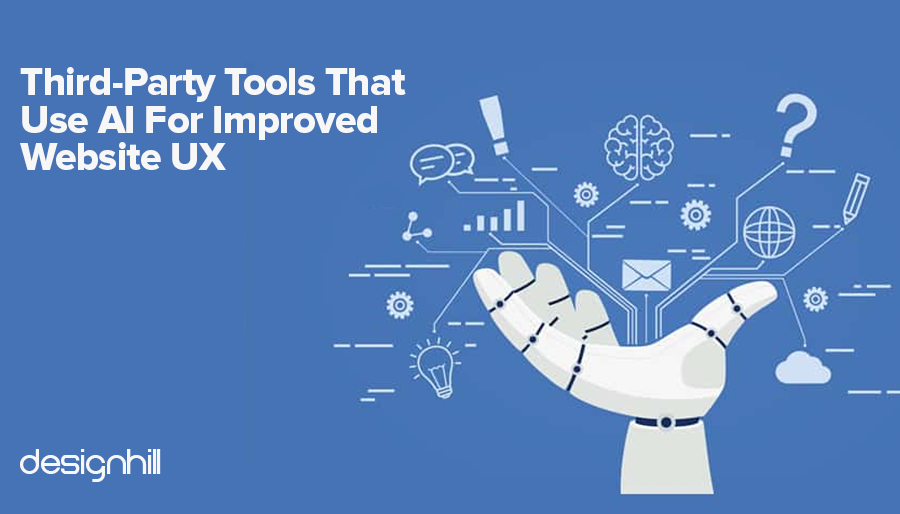
Using AI for UX Design is Awesome – Crash Course
Final Thoughts: Can AI Web Tools Improve User Experience?
As we wrap up our discussion on whether AI web tools can improve user experience, it’s clear that these technologies have the potential to revolutionize the way we interact with websites. By harnessing the power of artificial intelligence, businesses can enhance user experience and create more personalized and engaging online environments.
One of the key advantages of AI web tools is their ability to analyze user behavior and preferences, allowing websites to adapt and cater to individual needs. Through machine learning algorithms, AI can gather data on user interactions, understand patterns, and make intelligent recommendations. This level of personalization not only improves the user experience but also increases customer satisfaction and loyalty.
Furthermore, AI web tools can automate repetitive tasks and provide real-time assistance, making the browsing experience smoother and more efficient. Chatbots, for example, can answer customer queries instantly, saving time and effort for both users and businesses. Additionally, AI-powered algorithms can optimize website layouts, ensuring that content is easily accessible and engaging.
In conclusion, AI web tools have the potential to greatly enhance user experience by providing personalized interactions, automating tasks, and optimizing website layouts. As technology continues to advance, we can expect even more innovative applications of AI in the web development field. By harnessing the power of artificial intelligence, businesses can create user-centric websites that leave a lasting positive impression on visitors. So, embrace the possibilities of AI and unlock a whole new world of user experience enhancements.
